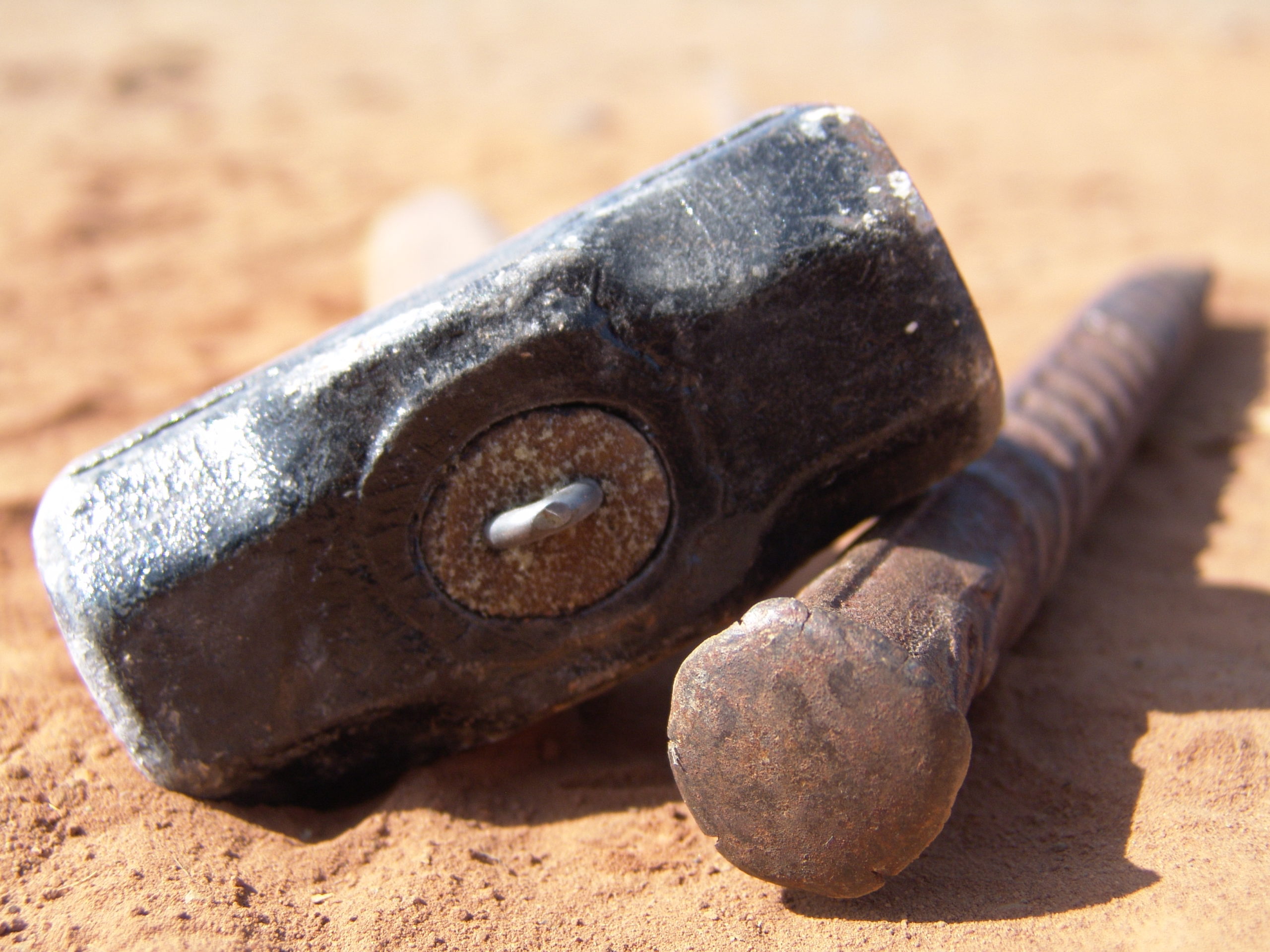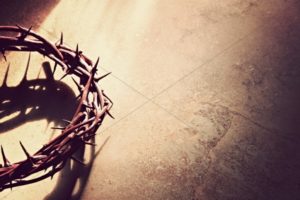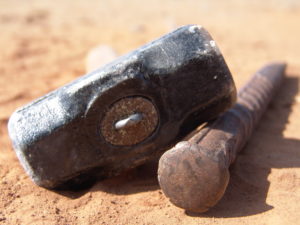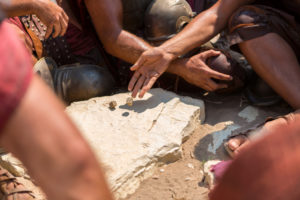A Reflection for Good Friday

As Good Friday nears, I’ve been thinking about some of the items associated with the weekend, and their significance. Reflect with me on the crown of thorns, the hammer and nails, and the dice the soldiers rolled for the robe of Christ.
 The Crown of Thorns speaks of mockery.
The Crown of Thorns speaks of mockery.
They dressed him in a purple robe, and they wove thorn branches into a crown and put it on his head. Then they saluted him and taunted, “Hail! King of the Jews!” And they struck him on the head with a reed stick, spit on him, and dropped to their knees in mock worship (Mark 16:16-19).
A crown was typically presented to identify royalty. The presentation itself would be known as a coronation, with honor and prestige a part of the ceremony. But the boredom of the soldiers was too much on this night. Better to poke a little fun at whatever prisoner Pilate might send their way. They cut thorn branches from the briars, wove them together and pressed them on the head of Christ. Using a stick, they drove the thorns into his scalp. Then laughing, they fell to their knees and feigned their worship. The very act that will be repeated throughout all eternity was here ridiculed and derided, repeatedly. Jesus, resolved to finish his mission, did not retaliate, but bowed his head humbly and endured.
 The Hammer and Nails speak of cruelty.
The Hammer and Nails speak of cruelty.
And they brought Jesus to a place called Golgotha … Then the soldiers nailed him to the cross (Mark 15:22-24).
When we wish to put something in place so that it cannot move, we affix it with nail. In our world, hammers and nails are used on things, not people. But, the hammer and nails in a crucifixion were meant to affix a man to his suffering and his public shame. He would not be coming down from the cross until the life had passed out of him. As a detriment to slaves’ rebellion, Roman crucifixion was intended to be public, painful, and to certify death at the end of the process. The Romans weren’t the first to come up with crucifixion, but they do get the credit for mastering its cruelty. Before a crucifixion was over, you would long for the sword or dagger. In crucifixion you suffocated slowly and surely. All the while, the nails wouldn’t let you go. For the average criminal, the nails held him in place. Not so with Jesus. The nails didn’t keep him on the cross, his love for mankind did. But they were a reminder that how we often treat our fellow human beings is punctuated with cruelty, not kindness.
 The Rolling of the Dice speaks of apathy.
The Rolling of the Dice speaks of apathy.
When the soldiers had crucified Jesus, they divided his clothes among the four of them. They also took his robe, but it was seamless, woven in one piece from top to bottom. So, they said, “Rather than tearing it apart, let’s throw dice for it.” This fulfilled the Scripture that says, “They divided my garments among themselves and threw dice for my clothing.” So that is what they did (John 19:23-24).
The soldiers who drew the duty to watch prisoners die on a cross, were always looking for something to pass the time. While we might be tempted to play cards when we’re bored, they rolled the dice. On this day, they could have cast a sympathetic eye towards the crucified or offered an empathetic hand toward his mother standing nearby. But they eyed the robe that had been taken off Christ before he was nailed to the cross. It was without seam or tear. It would make the perfect prize for the games they normally played to make their day pass a little faster. The word apathy means, “I don’t care.” They are unaware of the man’s suffering above them, or his mother’s pain alongside of them. The thing they desire is more important that the person that is dying. In Jesus’ act of dying he is saying, “I care about you.” By the soldier’s rolling the dice they are saying, “We could care less.”
On Good Friday, the best that mankind could muster was mockery, cruelty, and apathy. Fortunately, God chose to manifest something far better:
But God showed his great love for us by sending Christ to die for us while we were still sinners (Romans 5:8).
